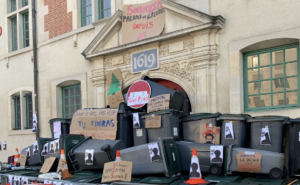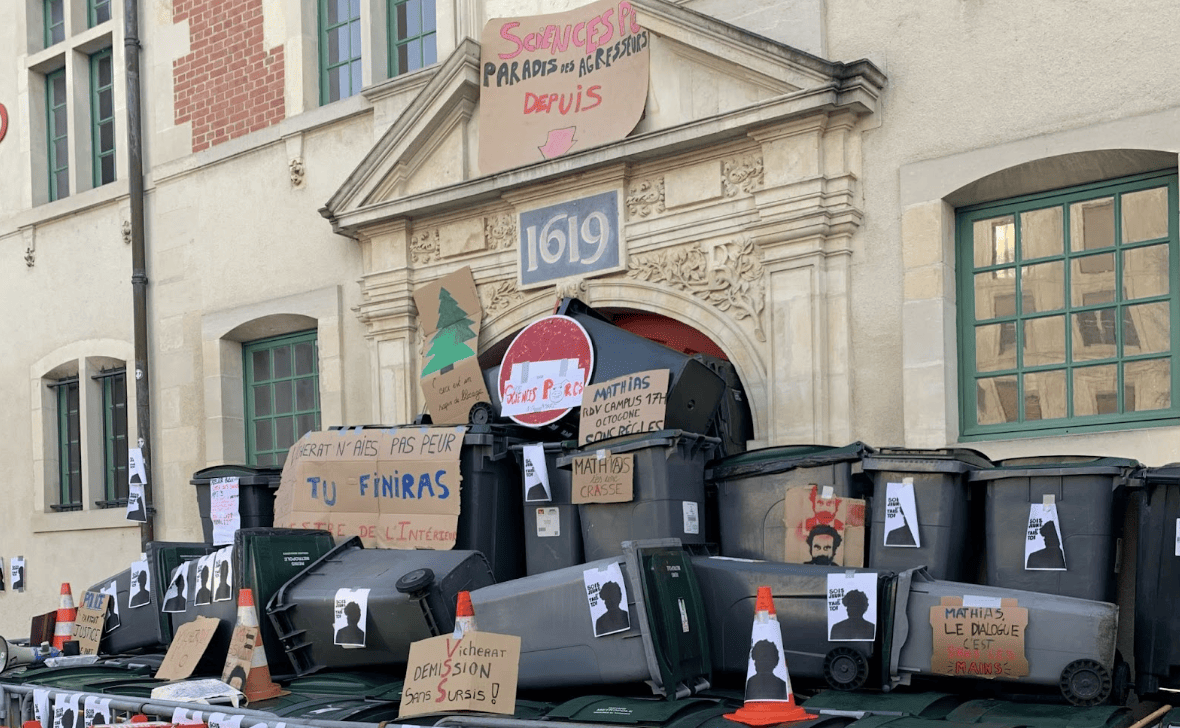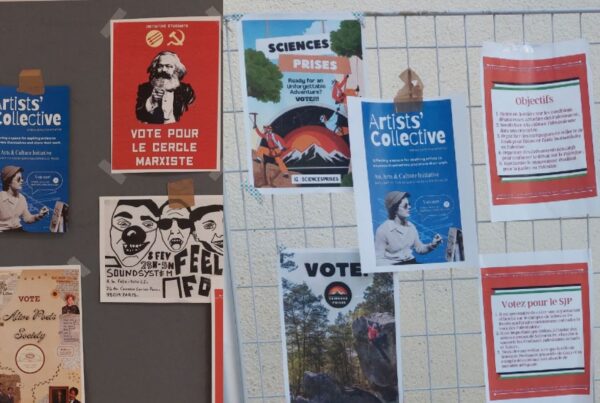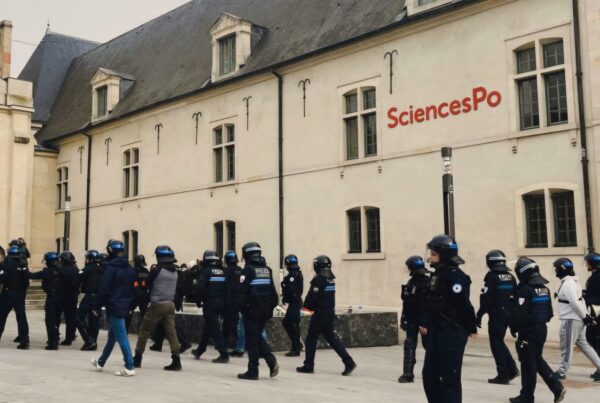
Writers picture
Our campus has just gone through a turbulent start to the second semester this academic year. Following the return of Mathias Vicherat as Director on January 29, two blockades have happened in the span of one week, bringing with them clashes about what is right or wrong on all campuses. But first, let’s recap what has led to here, what has happened since Vicherat’s return, and what we can expect going forward.
On December 3, an intercampus student working group was to meet with Mr. Vicherat to discuss the university’s sexual and gender-based violence (SGBV) policies. Unfortunately, the director was not available as – ironically – he had just been placed in police custody alongside his partner, following mutual accusations of domestic violence. The rest of the student body found out about the news the following day from the media and a communiqué from the administration. A day later, Mr. Vicherat sent out an email in which he referred to the incident as “elements relating to my private life and that of my partner [that] were disclosed in the media and on social networks yesterday.”
Of course, the pieces of news were met with upheaval on all campuses, especially in the context of our school’s problematic history with SGBV and students’ push for reform throughout the autumn semester. The campuses began to protest, and on December 7, the Reims campus experienced its first blocage of the 2023-2024 academic year. Days later, Mr. Vicherat denied the allegations against him in another email. He wrote that he has “never, under any circumstances, committed such acts” that were reported in the media. He also offered to withdraw from his duties, which was later approved by the relevant administrative boards. His return was set for the 29th of January.
In January, an unsigned letter from the administration acknowledged the damage done to the institution, but they planned to go ahead with Mr Vicherat’s reinstatement, even though three student unions called for his resignation and NOVA, another union, called for the extension of his temporary withdrawal. Additionally, petitions, protests, and dialogue with the administration failed to make headway. As the students’ complaints fell on deaf ears, they began blockading the campuses starting on the first day of Vicherat’s return.
Thus, on Monday, January 29, the students received an email informing them that the campus would be closed and classes moved online. By the next day, all campuses but Dijon performed a blocage to call for the resignation of our director. The students on the Dijon campus mostly agree that Mr. Vicherat should step down, but have so far not mobilised, unlike the other campuses. In Poitiers, the blocages lasted na full week, where protesting students garnered enough support from the general student body to keep going. Here, in Reims, there was a second blocage last Friday, and another today, Friday the 9th of February.
On our campus, students began debating whether the blocages are an acceptable way of protest. Many see it as the only option that the students have to force Mr. Vicherat to resign, as it previously worked during the Duhamel-Mion scandal of 2021. Demonstrators on Friday said that they have exhausted every other option – both attempting to establish a dialogue with the administration and starting a petition, neither of which has achieved anything. On the other hand, some students feel that the blockades take away their possibility to study in person, go to the library or eat at the Crous; especially if we take the context of international students paying a substantial tuition fee. Some also say that the issue of the presumption of innocence should be taken into consideration. Similar debates ensued on the other campuses, as well.
That being said, the organisers of the blocages have so far called general assemblies in which people could vote on whether a blocage should take place the next day. Some have criticised these general assemblies, as they claim that they are not representative of the student body, and thus the results are skewed. Nevertheless, the organisers feel that as the general assemblies are open to all who want to come, they are a reliable source of credibility and those who oppose the mobilisation could also come and vote.
To get a sense of what students in Reims think of the current situation, The Sundial Press conducted its own polls. Firstly, our results show that the students who voted overwhelmingly supported the resignation of Mathias Vicherat with 83 percent and just 9 percent against. Secondly, we asked participants whether they supported the blocages that took place so far as a form of protest. Here, we can see that there is still a majority supporting the blockades (75 percent for, 13 percent against), albeit a smaller majority than for the first question. This shows us that the Reims student body shows massive support for the departure of our director while also supporting the blocages as a way to achieve this goal. However, while our Instagram polls received over 350 responses each, they should not be taken as comprehensive proof of student sentiment.
Following my conversation with protestors last Friday, it became apparent that the blocages are likely to continue at least once every week despite the administration’s threatening email against the blockades last week. Student unions on all campuses are in touch with one another to coordinate their demonstrations to keep the pressure on the administration until Mr. Vicherat tenders his resignation. Until then, we can expect to see tensions rise as opinions clash over the scandal and the blocages.
Other posts that may interest you:
- The Trouble with ‘Ecocide’
- Carbon dioxide removal – hit or miss?
- Local Victories for Turkish Opposition — A Sign of Hope?
- Are France and Japan a Mismatch Made in Heaven?
- A Reflection on Dark Tourism
Discover more from The Sundial Press
Subscribe to get the latest posts sent to your email.





